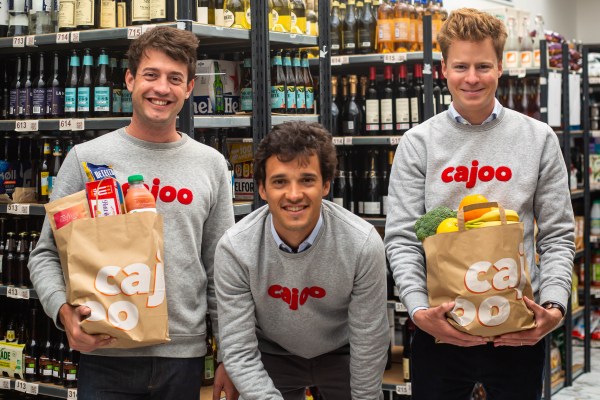French startup Cajoo is raising some money in order to compete more aggressively in the new and highly competitive category of food delivery companies. Interestingly, the lead investor in today’s funding round is Carrefour, the supermarket giant. Headline (formerly e.ventures) is also participating in the round as well as existing investors Frst and XAnge.
Carrefour’s investment isn’t just a financial investment. Cajoo will take advantage of Carrefour’s purchasing organization. This way, Cajoo will be able to offer more products to its customers.
Cajoo is part of a group of startups that try to create a whole new category of grocery deliveries. The company operates dark stores and manages its own inventory of products. Customers can then order items without having to think whether they’ll be home when the delivery happens. Around 15 minutes later, a delivery person shows up with your groceries.
The startup competes with Getir, Gorillas, Flink, Zapp and a few others. It also indirectly competes with traditional retailers and their online ordering systems.
“It’s a category that is incredibly capital intensive,” co-founder and CEO Henri Capoul told me. “We own the entire value chain. If we want to expand, we have to launch hubs, we have to buy products.”
With $40 million on its bank account, Cajoo now wants to solidify its strong market position in its home country. The service is currently live in 10 French cities — Paris, Neuilly-sur-Seine, Levallois-Perret, Boulogne-Billancourt, Lille, Lyon, Toulouse, Bordeaux and Montpellier.
And yet, the company is already facing some competition in Paris for instance. But Henri Capoul sees it as market validation. “There are a lot of players that have raised a lot of money. But it’s a regulated market. We own all our products and we have to comply with regulation. We can’t sell everything at a loss,” he said.
While Henri Capoul expects some sort of consolidation down the road, the company is doing everything to remain a big, independent company. “European champions will be national champions first. Right now, some players can overcome a lack of products with discounts. I’m convinced that the future of this category will be represented by three or four local players that are strong in other countries.” Henri Capoul said.
Cajoo is currently the only French company operating at this scale in this category. So it’s clear that the company sees itself as a market leader in France first. But the company is already looking at other markets as well — Belgium, Italy, Spain, maybe Portugal or Eastern Europe countries.
But first, the company wants to grow its team. The number of employees working in the HQ is going to double by the end of the year. Operations and delivery teams will also grow quite drastically. The company expects a fivefold increase by the end of the year on this front.
Some delivery people are directly hired by Cajoo. But the company is also relying on partners — both contracting companies and freelancers. So the company faces some of the challenges that Deliveroo and Uber Eats also face.
Cajoo might be a great business idea, but users will have to ask themselves whether it really solves an important need or they’re just using it because it exists. Instant delivery companies could have a real impact on brick-and-mortar shops over the long run.
